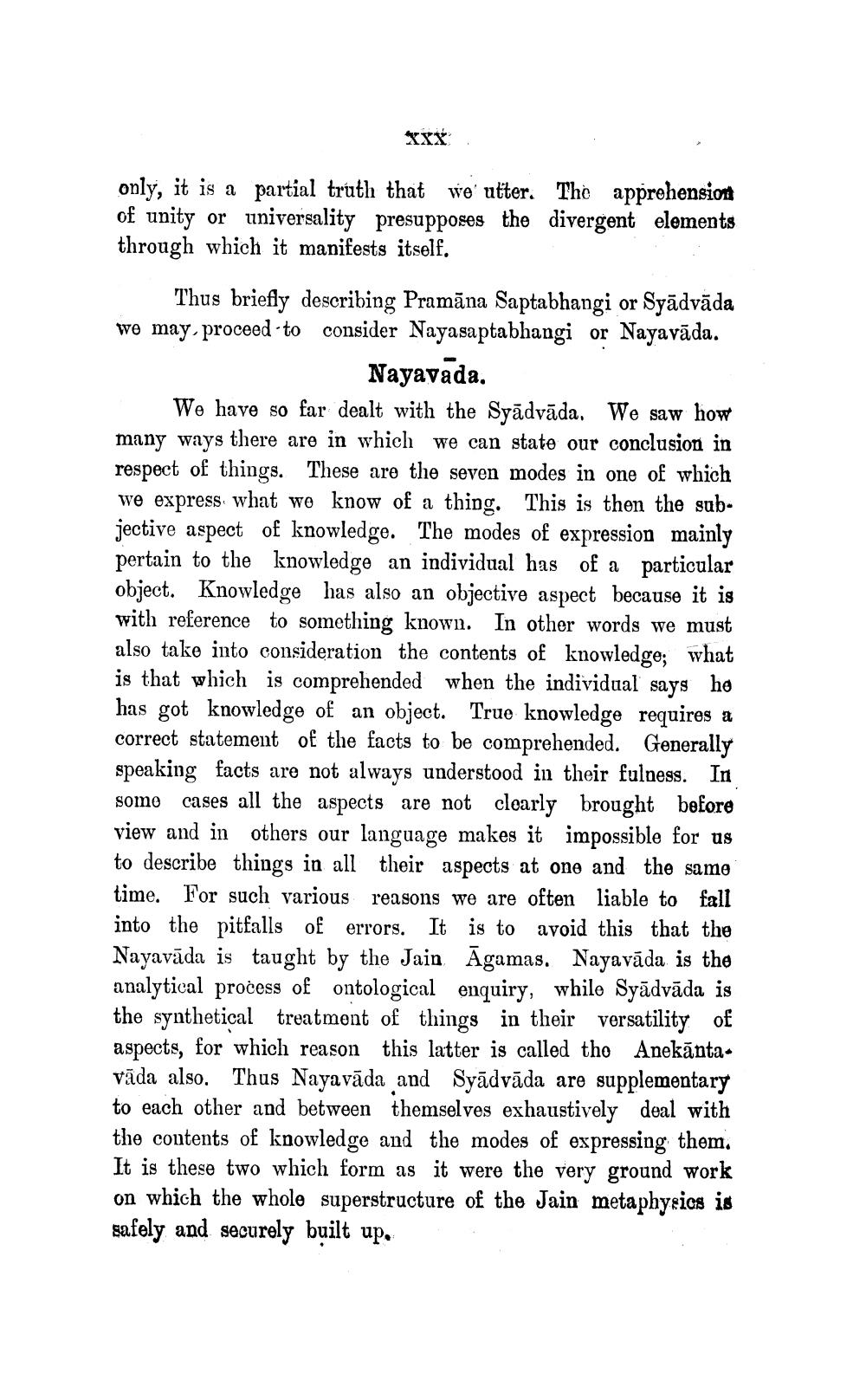________________
XXX
only, it is a partial truth that we' utter. The apprehension of unity or universality presupposes the divergent elements through which it manifests itself.
Thus briefly describing Pramāna Saptabhangi or Syādvāda we may proceed to consider Nayasaptabhangi or Nayavāda.
Nayavāda. We have so far dealt with the Syādvāda. We saw how many ways there are in which we can state our conclusion in respect of things. These are the seven modes in one of which we express what we know of a thing. This is then the subjective aspect of knowledge. The modes of expression mainly pertain to the knowledge an individual has of a particular object. Knowledge has also an objective aspect because it is with reference to something known. In other words we must also take into consideration the contents of knowledge; what is that which is comprehended when the individual says he has got knowledge of an object. True knowledge requires a correct statement of the facts to be comprehended. Generally speaking facts are not always understood in their fulness. In some cases all the aspects are not clearly brought before view and in others our language makes it impossible for us to describe things in all their aspects at one and the same time. For such various reasons we are often liable to fall into the pitfalls of errors. It is to avoid this that the Nayavāda is taught by the Jain Agamas. Nayavāda is the analytical process of ontological enquiry, while Syādvāda is the synthetical treatment of things in their versatility of aspects, for which reason this latter is called tho Anekāntavāda also. Thus Nayavāda and Syādvāda are supplementary to each other and between themselves exhaustively deal with the contents of knowledge and the modes of expressing them. It is these two which form as it were the very ground work on which the whole superstructure of the Jain metaphysics is safely and securely built up.




